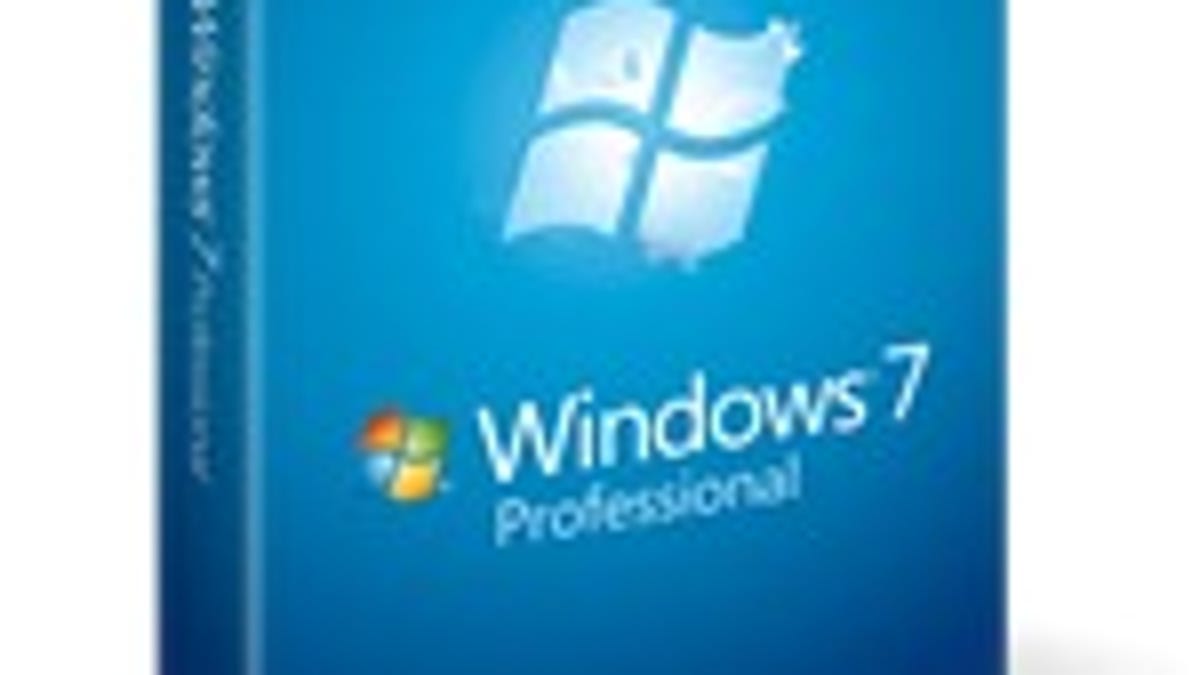The greening of tech packaging
Microsoft, in introducing smaller and easier-to-open packaging for its Windows 7 operating system, is following an industry trend, though there is much room for improvement.

Before Microsoft announced Windows 7 pricing, the company detailed earlier this week how it plans to package the operating system.
Microsoft claims that Windows 7 packaging "has a 37 percent weight reduction, and the econometrics score has improved by 50 percent over its predecessor." Instead of forcing customers to read instructions on how to open the box, Windows 7 packaging will open just like a DVD case.
"We've reduced the number of elements in the package down to three: the plastic case, the paper sleeve, and a simple Getting Started Guide," Microsoft wrote in a blog post. "The plastic case opens easily like a standard DVD case, and it will have a single easy-to-remove seal at the top--and that's it!"
According to the Environmental Protection Agency, packaging accounts for a third of consumer garbage. And as CNET pointed out on the Green Tech blog, "plastics comprise 12 percent of U.S. waste each year, but are rarely recycled, while some scientists fear that irresponsible dumping is making a plastic soup of the world's oceans."
Although software arguably should not require any packaging, instead relying purely on Internet downloads, and plastic packaging could (and should) probably be avoided altogether, Microsoft's reduction of packaging materials corresponds with a trend that I think is better for all of us.
During this year's Worldwide Developers Conference keynote speech, Phil Schiller, Apple's senior vice president of worldwide product marketing, made sure everyone knew that the packaging for Apple's products is more environmentally friendly than ever.
Apple claims on its Web site that "MacBook packaging is up to 42 percent smaller than that of the original MacBook." The company explains that by making the packaging smaller, it can increase the number of units on each pallet, leading to lower carbon emissions. The MacBook Pro packaging is up to "41 percent smaller" than previous boxes.
Amazon.com announced last year that it has started working with retailers to reduce the amount of packaging sent to customers as part of its "Frustration-free Packaging Initiative."
And in 2007, Hewlett-Packard announced that its print cartridge packaging was going green. According to the company, it expected the reduction to cut down on 6.8 million pounds of polyvinyl chloride (PVC) plastic annually. It also expected the change to reduce its greenhouse gas emissions by 37 million pounds.
That's just a small sample of companies changing packaging to become more environmentally responsible. It's commendable. But unfortunately, it's not universal.
Further steps
Reducing packaging is only half the green picture; the materials used are just as important. Plastic, for instance, doesn't degrade and become of use to nature. It also takes a lot of energy to create, further increasing its carbon footprint.
Apple, D-Link, and many other companies use cardboard when packaging products. Cardboard is seen as better for the environment than plastic because it's more recyclable and takes less energy to produce.
Another consideration: why can't makers of software, including games, ditch physical disc sales altogether? Most companies in the software space allow consumers to download their applications from the Web. If users need physical media, they can burn the operating system onto their own discs.
Although we should applaud companies for taking steps to improve the environmental impact of their products' packaging, there is certainly room for improvement. Microsoft is hardly a leader in this space, considering that Windows is one of the last major software packages without a download option.
Along with its colleagues, the Redmond giant is coming to understand that the time for environmentally irresponsible tech packaging is over.
Check out Don's Facebook profile, Twitter stream, and FriendFeed.

